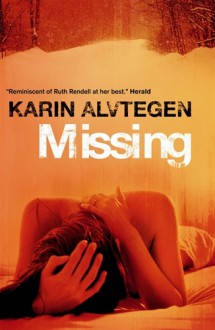Sybilla is an outcast, living off the radar of the authorities in Stockholm. She has various safe places and strategies for surviving each month until her meagre payment from her mother arrives at a PO box. One of her ploys is to put on a smart suit she keeps in her rucksack (bought from Oxfam),...
show more
Sybilla is an outcast, living off the radar of the authorities in Stockholm. She has various safe places and strategies for surviving each month until her meagre payment from her mother arrives at a PO box. One of her ploys is to put on a smart suit she keeps in her rucksack (bought from Oxfam), go to a luxury hotel bar, meet a businessman, flirt, pretend to lose her wallet, and trick the mark into paying for her room for the night. Unfortunately, on one of these outings, the man she tricks is found murdered the next morning. Sybilla escapes, but soon finds that she is the main suspect, becoming the victim of a police and media hunt.
Sybilla's survival over the next few days is interspersed with the story of how she came to drop out of society. She suffered a childhood of awful mental abuse, which made my blood boil to read about. With nobody to sympathise with her (to the contrary, everyone is against her and/or betrays her) she falls into a trap made of her own idealism and trusting nature, as a result of which she is abused even further by the authorities. The story of Sybilla's childhood leading up to her eighteenth birthday, is equally as harrowing as that of Lisbeth Salander, the main character of the Millennium Trilogy by Stieg Larsson, and Sybilla's solution, of living "off the grid", is remarkably similar to Lisbeth's.
Matters come to a head when Sybilla discovers that her source of income has dried up. She's now desperate, and friends she's made since living rough cannot or will not help her now. The hunt for her intensifies. Eventually, she thinks of one hiding place where she is likely to be safe - and while there, she finds an unusual ally and a strategy for dealing with her dilemma.
show less






 12 years ago
12 years ago